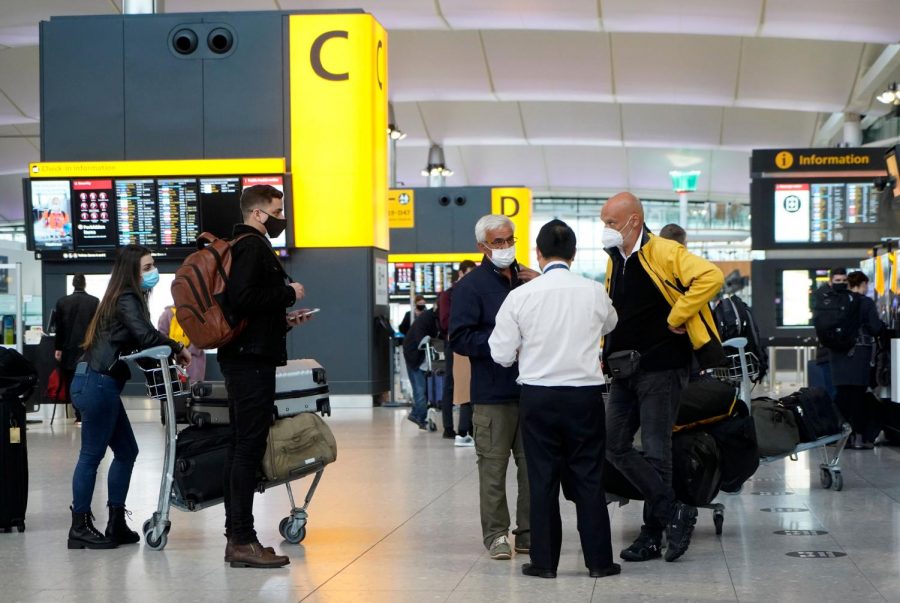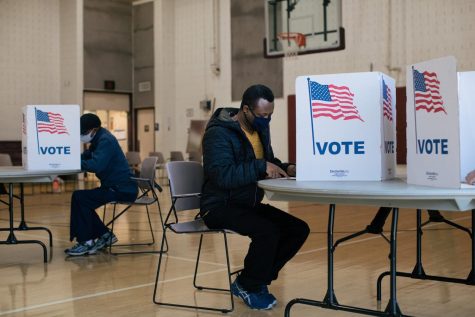Trade and Travel in a Global Pandemic
September 29, 2021
The effects of travel bans and arms deals on international relations
Early in September, France, a leading state in the EU, joined many European states in removing the United States from their safe travel list. This means American citizens are no longer able to easily travel to and from France. Soon after, the United States lifted restrictions for travel from Europe.
This overall creates an imbalance in the relationship between the U.S. and France. Coupled with the vocal French resistance to the AUKUS (Australia, UK, and the U.S.) submarine defense deal, we may be seeing a resurgence of French resistance to the U.S. as a whole.
From the end of World War II until 1970, French President Charles de Gaulle was vocal in the creation of a unique French identity, one that would not submit to American hegemony. This simmered down after the death of de Gaulle and France became a staunch American ally and an integral member of the American sphere.
The AUKUS deal was an attempt by the Biden administration to counter the growing economic and military threat that China is currently possessing to the U.S., particularly in the Pacific. This deal negated an agreement between the Australian and French governments, creating a slight between two American allies.
The deal led France to withdraw its ambassadors from both the U.S. and Australia and see a friend in China. According to Dr. Ortuoste, the chair of the Department of Political Science department at California State University, East Bay, “Australia has a fairly capable navy in their own right,” and that whoever was able to secure the deal with Australia would increase their power and cooperation in the Indo-Pacific region.
Regarding international trade of arms, the U.S. is the largest with Australia being our second largest trading partner. France is the third largest exporter of arms and this deal could have seen competition in this sector of the international economy. All of this would have been a huge win for Emmanuel Macron who is seeking reelection next year. “This could be another driver for the French government’s actions right now,” Ortuoste said.
This seemingly new focus in the Indo-Pacific region is not unfounded. “France has a decent influence in the Pacific, nearly a fifth of French loans in 2020 were issued to states in the Indo-Pacific region,” Ortuoste continued.
If this tension between the U.S. and France continues, then an opportunity presents itself for an increased Chinese presence in Europe. The advisory against American tourists to France also limits American soft power, diplomatic influence, in the country.
Europe itself is dominated by the EU, an organization in which most influence rests in Germany and France. Germany will soon be finding itself needing to adjust their own international presence with a huge ideological shift occurring in the country and the likely election of the Social Democrats allowing a left-leaning government taking power after nearly two decades of Angela Merkel’s center-right party maintaining control. This would lead to the EU being fully dominated by France for the time being. Ortuoste continued with, “France has often desired a multipolar world” rather than a singular hegemon dominating international affairs.
Overall, what we are seeing based solely on a trade deal gone wrong and travel advisories can drastically affect American standing globally, meaning that travel for American citizens could be less safe as well as a decrease in the enrollment of international students choosing to attend American schools. The fall of American hegemony in Europe would likely collapse most regions’ ability to trust or fear American power.
Luckily, President Biden and President Macron have recently come to friendly terms, and President Biden affirmed “the strategic importance of French and European engagement in the Indo-Pacific region.”
















